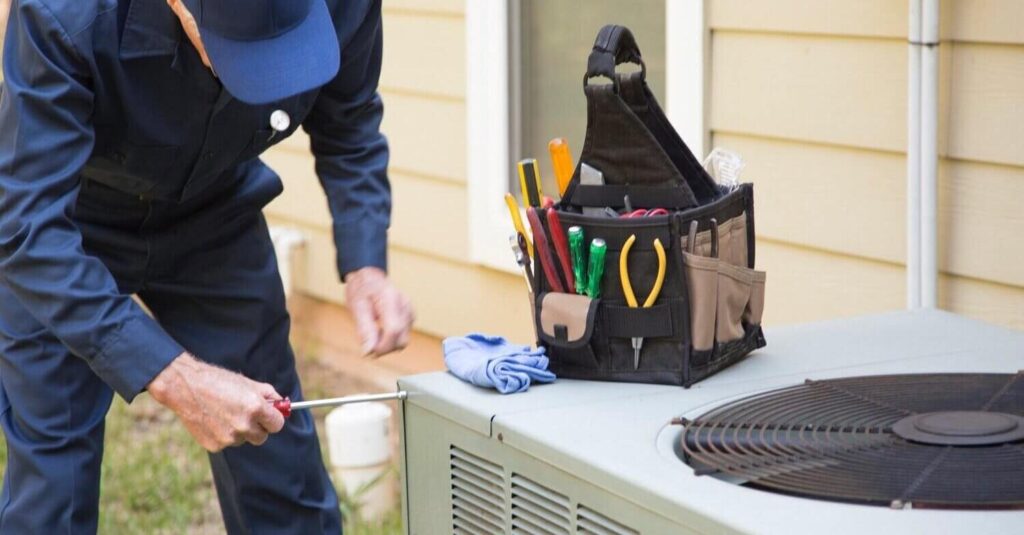Regardless of the weather outside, your house is kept pleasant by the ducting, heater, and air conditioner. In harsh climates, a functioning HVAC system is essential for health and safety, and even in gentler ones, the HVAC system is crucial to maintaining interior air quality and the right humidity level.
The ideal individual to conduct installations and repairs on your heater or air conditioner, regardless of the brand that you own, is a qualified HVAC specialist.
What Do Contractors in HVAC Do?
HVAC specialists set up, look afterand fix temperature control systems. Air conditioning, ventilation, and heating are referred to as HVAC. This implies that HVAC includes all the ducting and venting systems that transport either cold or warm air throughout a structure. An HVAC specialist may work on heaters, furnaces, AC units, heat pumps, and cooling systems, among other types of HVAC equipment.
When should you contact a contractor for HVAC?
When you wish to set up an entirely novel system or your existing system is having issues, you should contact an HVAC professional. A Logan AC installer can help you get your new system set up and running in no time.
Installation
A new home should have its cooling and heating systems installed by HVAC specialists. Additionally, the HVAC systems in many homes and businesses eventually need to be updated or upgraded. When an older structure has to be adapted for an additional or more substantial system, the procedure is particularly difficult.
To operate, these systems need a lot of energy. High energy expenses may result from the device wasting energy as a result of improper installation. Make sure to include labor in the price of a cooling device, a furnace, or a boiler replacement.
Maintenance
All year round, HVAC systems are frequently used. It is crucial to do regular checks on your heating and cooling system, especially an annual tune-up, even if they may be unused during warmer seasons. An HVAC expert will make sure everything is operating as it should by checking the refrigerant levels in your system, replacing the air filters, and cleaning the fans, and vents.
They will locate the issue if anything is broken so it does not become worse. Local HVAC providers frequently provide clients with priority scheduling for yearly maintenance plans before it becomes excessively hot or cold outside. The infrastructure will be fixed up and prepared for the season in this way. Duct cleaning services may also be provided by some businesses.
Repairs
To repair an HVAC system, a problem must first be identified and then either fixed or replaced. This repair job could involve finding the leak’s origin, checking thermostats, changing supply lines, and other things.
An inadequately circulated home could grow too humid, which might invite bugs or mold and mildew problems. You could detect too strong scents or irritants. Cleaning or clearing obstructions from ducts or ventilation holes, adding more fans, or air filtration may all be necessary to solve ventilation issues.
Conditional air
In order to eliminate heat from interior air and circulate it outdoors, air conditioners utilize a forced-air mechanism and a substance known as refrigerant. The EPA mandates that all air conditioning contractors get an EPA 608 certification before handling refrigerant since its leakage poses a risk to both persons and the environment.
This makes it all the more crucial to contact a technician if you suspect a refrigerant leak in your air conditioner. A certified technician is also necessary for less serious issues. You should request that a professional inspect your air conditioner if it seems to be operating but is not working effectively or evenly cooling your house.
Furnaces, steam boilers, as well as heat pumps are examples of heating appliances that can run on electricity, gas such as natural gas, propane, as well as fuel oil, solar power, or even wood. Other heaters may employ radiant cooling in the ground or walls, while others, like furnaces, utilize airflow to spread heat throughout a structure.
It is essential to bring in an HVAC expert if the equipment is heating unevenly or poorly, or if the heating or cooling system is generating strange sounds or aromas. Even though these networks do not utilize refrigerants, many of them employ combustible materials and produce a lot of heat, therefore it is better to leave maintenance to the experts.
Ventilation
Although systems for ventilation are sometimes disregarded, they are crucial for preserving air quality and dispersing warm and chilly air. The system that replaces stale air inside with cleaner air and circulates it through your home is made up of air ducts, ventilation systems (https://www.hvi.org/resources/publications/mechanical-ventilation-types/), and fans in your house.
Compared to issues with heaters or air conditioners, ventilation system issues are frequently more subtle. An inadequately circulated home could grow too humid, which might invite bugs or mold and mildew problems. You could detect too strong scents or irritants. Cleaning or clearing obstructions from ducts or ventilation holes, adding more fans, or air filtration may all be necessary to solve ventilation issues.
